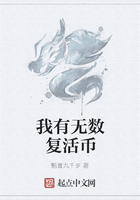Fanny Assingham had at this moment the sense as of a large heaped dish presented to her intelligence and inviting it to a feast--so thick were the notes of intention in this remarkable speech. But she also felt that to plunge at random, to help herself too freely, would--apart from there not being at such a moment time for it--tend to jostle the ministering hand, confound the array and, more vulgarly speaking, make a mess. She picked out after consideration a solitary plum. "So placed that YOU have to arrange?"
"Certainly I have to arrange."
"And the Prince also--if the effect for him is the same?"
"Really I think not less."
"And does he arrange," Mrs. Assingham asked, "to make up HIS arrears?"
The question had risen to her lips--it was as if another morsel, on the dish, had tempted her. The sound of it at once struck her own ear as giving out more of her thought than she had as yet intended; but she quickly saw that she must follow it up, at any risk, with simplicity, and that what (260) was ******st was the ease of boldness. "Make them up, I mean, by coming to see you?"
Charlotte replied however without, as her friend would have phrased it, turning a hair. She shook her head, but it was beautifully gentle.
"He never comes."
"Oh!" said Fanny Assingham: with which she felt a little stupid.
"There it is. He might so well, you know, otherwise."
"'Otherwise'?"--and Fanny was still vague.
It passed this time over her companion, whose eyes, wandering to a distance, found themselves held. The Prince was at hand again; the Ambassador was still at his side; they were stopped a moment by a uniformed personage, a little old man, of apparently the highest military character, bristling with medals and orders. This gave Charlotte time to go on. "He has not been for three months." And then as with her friend's last word in her ear: "'Otherwise'--yes. He arranges otherwise. And in my position," she added, "I might too. It's too absurd we should n't meet."
"You've met, I gather," said Fanny Assingham, "to-night."
"Yes--as far as that goes. But what I mean is that I might--placed for it as we both are--go to see HIM."
"And DO you?" Fanny asked with almost mistaken solemnity.
The perception of this excess made Charlotte, whether for gravity or for irony, hang fire a minute. (261) "I HAVE been. But that's nothing," she said, "in itself, and I tell you of it only to show you how our situation works. It essentially becomes one, a situation, for both of us. The Prince's however is his own affair--I meant but to speak of mine."
"Your situation's perfect," Mrs. Assingham presently declared.
"I don't say it is n't. Taken in fact all round I think it is. And I don't, as I tell you, complain of it. The only thing is that I have to act as it demands of me."
"To 'act'?" said Mrs. Assingham with an irrepressible quaver.
"Is n't it acting, my dear, to accept it? I do accept it. What do you want me to do less?"
"I want you to believe that you're a very fortunate person."
"Do you call that LESS?" Charlotte asked with a smile. "From the point of view of my ******* I call it more. Let it take, my position, any name you like."
"Don't let it at any rate"--and Mrs. Assingham's impatience prevailed at last over her presence of mind--"don't let it make you think too much of your *******."
"I don't know what you call too much--for how can I not see it as it is? You'd see your own quickly enough if the Colonel gave you the same liberty--and I have n't to tell you, with your so much greater knowledge of everything, what it is that gives such liberty most. For yourself personally of course," Charlotte went on, "you only know the state of neither needing it nor missing it. Your husband doesn't treat (262) you as of less importance to him than some other woman."
"Ah don't talk to me of other women!" Fanny now overtly panted. "Do you call Mr. Verver's perfectly natural interest in his daughter--?"















